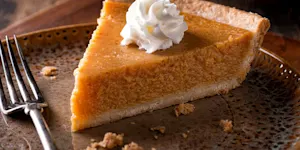What Makes This Word Tick
"Imprecate" might sound like something out of a Harry Potter spellbook, but it's more about casting words than wizardry. It's a verb that means to invoke evil upon or curse someone. Think of it as the opposite of a blessing — the darker counterpart to wishes of goodwill.
If Imprecate Were a Person…
If "imprecate" were human, it might be the kind of neighbor who calls you over to share a bitter story of someone who cut them off in traffic. There’s an intensity there, a certain edge, and perhaps a bit of a dramatic flair. This character remains memorable, if not a bit prickly.
How This Word Has Changed Over Time
The usage of "imprecate" hasn't seen a sunny transformation over the centuries. Its core meaning has stayed strikingly consistent — to wish doom or disaster upon others. While its usage has dwindled in modern conversation, the concept remains alive and well, especially in heated arguments or theatrical productions.
Old Sayings and Proverbs That Use Imprecate
This word hasn't scored a leading role in any well-loved proverbs. Cursing and blessings have older expressions, but an imprecation feels like it belongs on a stormy Shakespearean stage rather than in a motherly idiom.
Surprising Facts About Imprecate
Here’s a twist: "imprecate" shares roots with "preacher" — both spring from Latin origins related to speaking and invoking. But while one spreads goodwill, the other revels in expressing anger and resentment. Both are powerful tools in the domain of verbal exchange.
Out and About With This Word
"Imprecate" doesn't often make it into everyday chatter. You're more likely to encounter it in gothic novels or classic dramas where a character might shout imprecations from a shadowy tower rather than around your local coffee shop or while gossiping about the neighbor's unraked leaves.
Pop Culture Moments Where Imprecate Was Used
While "imprecate" isn't dropping into pop lyrics or TV scripts, its essence is alive and kicking. Any scene where a character utters a fierce curse, think "Game of Thrones," hints at the nature of imprecation. It's drama fit for the small screen, wrapped in a cloak and dagger.
The Word in Literature
You'll find "imprecate" lingering in the pages of 19th-century literature, where authorial voices didn't shy from intense emotional displays. Think of Edgar Allan Poe or Mary Shelley, who painted dark, complex landscapes where such words thrived amid stormy emotions and vengeful characters.
Moments in History with Imprecate
One historical moment that captures the spirit of imprecation is when seafarers, facing the wrath of the sea, might shout curses into the howling winds during fierce maritime battles. It might not be recorded verbatim, but the essence — invoking a powerful force against foes — is timeless.
This Word Around the World
In different cultures, the act of cursing or imprecation can vary greatly. In Italy, the "evil eye" is a cultural staple that mirrors the intent of an imprecation, while in parts of Africa, traditional curses hold significant community power, manifesting the universal human wish to project harm through words.
Where Does It Come From?
With roots in Latin, "imprecate" combines "im-" (into) and "precari" (to pray, ask, or entreat). It shares ancestry with "pray," though their paths diverged dramatically, much like two stories told in parallel yet distinct narratives.
How People Misuse This Word
A common mistake is to conflate "imprecate" with mere complaining or expressing frustration. True imprecation carries the weight of wishing misfortune upon someone, a nuance lost if used too casually.
Words It’s Often Confused With
Implicate: While one involves suggesting someone in a wrongdoing, "imprecate" is about a verbal wish of harm.
Imprecise: Far from a cursing act, this simply refers to lack of exactness.
Inveigh: Though it describes a strong verbal attack, it doesn't carry the same curse-like intensity as "imprecate."
Additional Synonyms and Antonyms
For synonyms, think of "curse" and "execrate." As for antonyms, "bless" and "praise" offer uplifting alternatives to the dark desires of imprecation.
Want to Try It Out in a Sentence?
Though Edward seemed calm, he quietly chose to imprecate the weather, wishing the storm to turn upon itself rather than spoil his Sunday picnic plans.
















